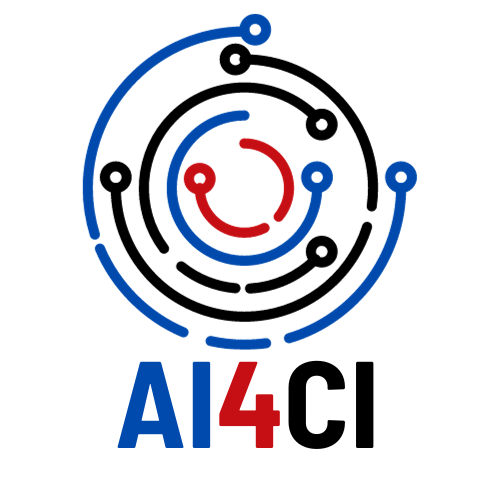Master's Degree in Computer Science
Training
The Master's degree in Computer Science offers a very high level of training, combining theoretical and practical skills, scientific bases and internships in companies.
The Master's degree is divided into four different courses:
- Software Engineering for the Digital Society (ILSEN) whose aim is to train students in the software industry, preparing them for the changing role of software, the development of new technologies and the need to adapt to new technologies. the heart of the company's information system to the heart of the organisational system of our societies.
- Cloud infrastructures and distributed systems (SYRIUS) whose aim is to train computer scientists in the cutting-edge fields of information and communication technologies, from advanced network architectures (new generation, wireless, embedded) to emerging applications for these constantly evolving communication tools/means (intelligent mobility, Cloud, virtualisation, security).
- Artificial Intelligence (AI) whose aim is to train computer scientists in the models and techniques for implementing applications capable of simulating 'intelligence', through mastery of the concepts of machine learning and data science, as well as taking account of the technological and societal issues associated with massive data (big data).
- Artificial Intelligence for Connected Industries (AI4CI) is part of an international master's programme coordinated by CNAM. The AI4CI addresses a critical challenge facing the whole European industry sector: the need for professionals with expertise in Artificial Intelligence (AI) applied to connected industries. As AI continues to transform industries across the globe, shortage of professionals with these skills may lay in the critical path towards a competitive EU stance at the industrial level. To address this challenge, the AI4CI project proposes to create a new teaching programme focused on AI for connected industries. By developing the master's programs, the project aims to provide students and professionals with a well-rounded education that prepares them for the challenges and opportunities of this rapidly-evolving field. Students can take part in M2 exchanges with other AI4CI institutions. The AI4CI master is co-funded by the European Commission, Digital Europe Programmemanaged by HADEA (contract nb: 101123524).
The ILSEN, SYRIUS and IA courses can be followed as part of a training programme. initial, continues or in alternation.
Content of the course
ILSEN course
Download the training sheet.
For more details on the courses: see here.
SYRIUS route
Download the training sheet.
For more details on the courses: see here.
IA course
Download the training sheet.
For more details on the courses: see here.
AI4CI course
Discover the European project here.
For more details on the courses: see here.


Organization
The training of the Master in Computer Science takes place over the two years of training in the following form:
- of the teachings of professionalization The programme includes English language courses, management and company knowledge courses, as well as a compulsory 6-month internship or company projects for alternating students;
- two lessons fundamentals for the IT professions around web engineering and cloud or virtualisation architectures;
- an opening towards research and innovation with the taking of courses on technology watch or modelling techniques used in the digital society, and the request to produce a demonstration prototype;
- applications and framed projects throughout the course;
- of optional in-depth and business-oriented coursesThis is a choice for each student according to his or her speciality and professional objectives.
- For ILSEN, UEs related to software design, software engineering and distributed architectures
- For SYRIUS, EUs concerning security, network and system infrastructures or connected objects
- For AI, EU courses on artificial intelligence, machine learning and its applications, data analysis and Big Data
Target skills and opportunities
Competencies common to all three pathways:
- thinking and mastering the responsible digital enterprise to optimise its economic efficiency
- collaborate and communicate in the globalized context of the digital enterprise
Specific competences of the ILSEN pathway :
- design and develop applications for the digital society.
- to exploit and analyse the complex data flows arising from the digital society.
Skills specific to the SYRIUS pathway :
- design and develop innovative services adapted to communicating computer systems
- analyse, design and administer secure network architectures in the context of a connected society
Specific competences of the IA pathway :
- exploit and analyse the complex data flows of the digital society
- Understand the different techniques of machine learning and know how to implement solutions adapted to different data processing applications
Industry and the tertiary sector offer opportunities in engineering, design, research and development (R&D) and fundamental research. Hiring is also clearly driven by Digital Service Companies (DSC) oriented towards new technologies and by telecommunication operators.
Occupations targeted by the course and common to all courses :
- Information systems architect, computer systems
- IT Consultant (Information Technology)
- R&D Engineer
- IT Project Manager
- Director of IT (DSI)
- Head of MOA (IT project management)
Professions specific to the ILSEN pathway :
- Software engineer
- Web and mobile application architect or designer
- Application server architect or designer (Java EE/.Net)
- Business Intelligence Consultant
Professions specific to the SYRIUS pathway :
- Network and System Security Consultant
- Network and security architecture auditor
- Systems and Network Administrator, Information Systems
- Network Services Infrastructure Designer and Integrator
- Embedded Systems Architect
- IoT Engineer - Connected objects
Jobs specific to the IA pathway :
- Data analyst and data scientist
- Artificial Intelligence Engineer
- Knowledge and Data Engineer
- Data & Innovation Consultant
- Business Intelligence Consultant
Updated on 13 June 2025